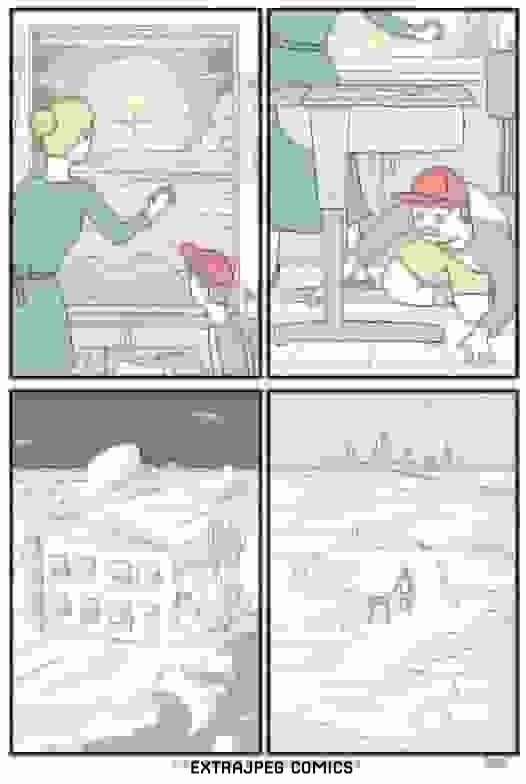It’s to protect from falling debris from the ceiling. How much it helps is debatable but it’s best they have there in school. More effective on traditional bombing than nukes
In Finland we have bomb shelters everywhere, it’s arguably more effective
Edit: I’m too drunk to write coherent sentences
It’s also to give people something to do. Something to practice and focus on getting right. Gives hope and keeps people from getting caught in a panic loop.
Man, that is so depressing to read though.
This too, very much
In sweden we had nuke safe kindergartens, concrete slides to put in the 40 cm deep windows and all.
We remember russia and the fucking soviet union.
That edit is expected of anyone Finnish.
Sincerely, a drunk Bavarian
In WW1 armies learned helmets were a good idea when artillery kicked up big chunks of debris killing unlucky soldiers when it rained down on them. Ballistic protection was an afterthought that came along later.
So yeah better than nothing I guess, same with tornado drills our schools have sometimes
They almost stopped using helmets again, too. The number of head injuries skyrocketed. Thankfully, someone pointed out to command that the helmets weren’t causing the injuries, but converting fatalities into injuries. They hadn’t been recording head injuries on corpses.
It also helps against what tends to be modeled and seen as the largest cause of injury during a nuclear scale explosion like that seen in Beirut, namely shards of glass, though it definitely helps survive falling beams in timber framed buildings.
Remember, thanks to the wonders of the inverse square law you are statistically far more likely to be in the area that gets light to moderate blast damage from the pressure wave rather than core of the blast.
Duck and cover was supposed to reduce casualties in the relative outer regions of the blast damage area (which are by far the largest).
Yeah, a nuclear blast is gonna be totally deadly within a particular radius, no matter what you do. And then at some larger radius, everything outside that radius will be safe, regardless of what you do. So the area in between is going to be the area where the response can make a difference.
And as you mention, the area of the “can actually make a difference” zone is much larger than the “dead-no-matter-what” zone, because it scales by the square of the distance. So if the outer safe radius is twice the inner death radius, the area of the in between zone is gonna be about 3 times the size of the death zone (π(2r)^2 - πr^2 = 3πr). If it’s 3 times the radius, it’ll be 8 times the area.
People only think about extremes. Why do we need seatbelts on a plane? Well, not for the crash, for the tons of turbulence you don’t think about because you’re wearing your seatbelt when they happen.
Just keeping people away from the windows could potentially prevent hundreds of thousands of injuries from burns and flying glass in the survivable area of the blast radius. It’d be really hard to overstate what a massive difference that could make when it comes to allocating medical resources in the aftermath.
Fantastic quality as ever

Original

What’s the difference between the original and the one in the post?
More pixels. Fewer jpeg.
I must have really bad eyes they look identical to me.
It’s likely a combination of things.
Firstly, most people don’t know what the difference is between a low quality image with compression artifacts and a nice clean, quality image.
Also, many people don’t keep their screens clean, or they could be broken. So many times my friends or family will share a photo they took with their phone and it’s blurry as hell because the glass over the lens is dirty and smudged.
Lastly, it could just be how you view the image. You could be viewing a smaller or more compressed version because your app is trying to save space. Or it could be that your screen itself is low quality.
But even though the difference in quality is lost on some people, that does not mean all people. I think it’s important to provide higher quality content because it shows respect to the creators of the content as well as the people you share it with. Not only that, but if Lemmy is the place to find the higher quality content then that sets it apart from all the other social media platforms.
Here’s a comparison:

I used https://www.diffchecker.com/image-compare/ - I uploaded the two files there.
This is awesome! Thanks. The Lemmy post shows up so tiny on my phone and I can’t zoom in.
TBH I was confused by what looked like a cross - I thought it meant Jesus was showing up.
Biblically accurate explosion.

I thought of the KKK. Thanks for the better quality picture.
Yeah, mention grapefruit and some people think of a nice breakfast, others think of getting squirted in the eye.
We had an earthquake drill at one place I worked, where there was an outside door less than 20 feet from our desks. Another guy and I agreed, if there was ever an earthquake we were heading out that door and would wait in the middle of the parking lot until it was over and then help dig bodies out of the rubble. Somebody said, “What about falling debris?” It was a freaking 2-story building, but yeah we conceded we’d be taking a risk for a second or two as we sprinted clear - vs expecting our cubicle furniture to keep a collapsing building off us lol.
Stairwells are the most structural sound area of any multi story building.
Having lived through a major earthquake - if it’s a brick or concrete tilt-slab building, you are way better off inside the building. The risk isn’t so much some random piece of something falling off, it’s the entire facade of the building coming down on your head.
Like I said, middle of the parking lot - I’m talking at least 100 ft away from a building that was maybe 30 ft tall.
shrug if you think you can run 100 ft faster than concrete can fall 30 during an earthquake so strong you can’t stand then more power to you I guess
I don’t think I can outrun concrete that starts falling at the exact moment I start running. What I think is that the odds are low that the timing will be so perfect, and also that the odds of getting crushed under a desk are so much greater running would definitely have given my higher odds of survival in the specific situation I outlined.
If the face of the building falls off faster than they can get out to the middle of the parking lot then everyone inside is already dead too.
Correct me if I’m wrong, but if you’re able to perceive the nuclear explosion and not even go blind, then you aren’t close enough for your house to disintegrate like that.
The blindness thing is really only for a split second while the fission/fusion is actually happening. By the time the mushroom cloud has formed, the actual explosion was like 30 seconds ago.
If you see a full mushroom cloud, that means the glass in front of you is probably going to rapidly accelerate into your skull when the shockwave hits you.
Wow how is it so fast
I guess that’s why it has to be enriched so much
Nukes are crazy.
The mushroom cloud is actually caused by all the dust and debris that gets sucked up into the actual explosion.
Nuclear reactions happen at near light speed, and the heat from them does propagate at light speed.
I still struggle to see how that sudden reaction can create so much pressure, a regular explosive is creating heavy byproducts and is expanding the gases already present in the explosive, but the sudden heating of a small uranium core and the air around it can create a bigger explosion than a bomb thousands of times heavier? Boggles my mind
Yea, the concentration of energy trapped in matter is immense. People say matter is energy and e=mc^2 but you really have to do the calculations to see how much work that c squared is doing. A small grain of sand is probably more energy than the largest bomb, but the hard part is converting that matter into energy.
A hydrogen bomb (even bigger than a nuke,) converts less than a percent of the matter in the bomb to energy.
energy=mass x the speed of light squared.
its like a spacetime sneeze.Well that’s the thing, conventional explosions convert chemical bonds into energy. Chemical bonds are fairly weak in the grand scheme of things.
Nuclear weapons convert nuclear bonds into energy. Atoms really like staying the atoms they currently are, so forcing them to convert all at once releases a ton of energy.
deleted by creator
Better this way

“And after the all clear had rung, we could crawl out from under our desks, go outside, and FUCKING MELT!”
Iron Giant did it better.
deleted by creator









